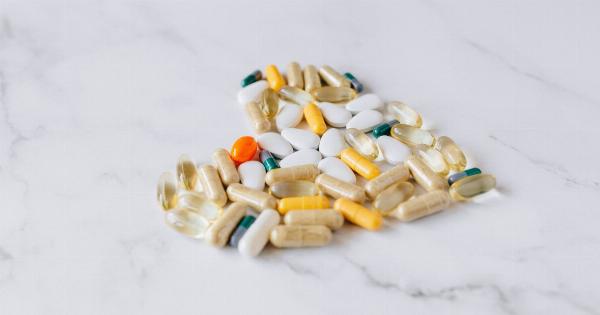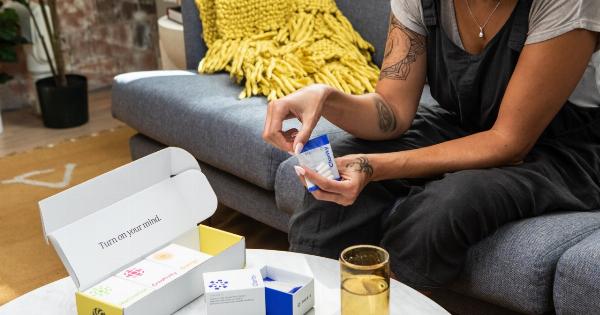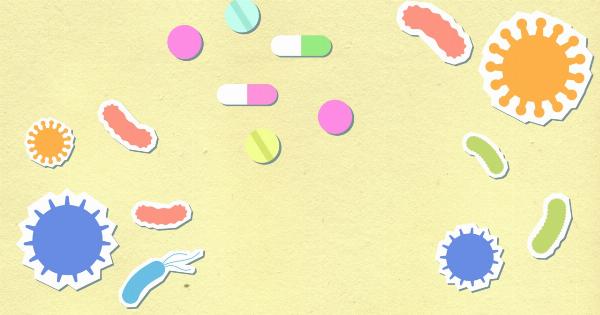Medication absorption plays a crucial role in the efficiency and effectiveness of various treatments. It’s essential for individuals taking medications to be aware of any potential factors that may interfere with the absorption process.
Surprisingly, one such factor can be found in a fruit that is commonly consumed worldwide. This fruit, when combined with certain medications, can pose a danger to medication absorption. In this article, we will delve into the effects this fruit can have on drugs and explore the consequences of this interaction.
Understanding Medication Absorption
Before we delve into the dangers associated with this fruit, it’s crucial to understand how medication absorption occurs in our bodies.
Absorption is the process by which drugs are taken up into the systemic circulation and distributed throughout the body to produce their therapeutic effects. The rate and extent of absorption depend on various factors, including the route of administration (oral, topical, etc.) and the physicochemical properties of the drug.
The Fruit That Jeopardizes Medication Absorption
The fruit in question is grapefruit. Yes, the seemingly harmless and delicious citrus fruit that many enjoy as a refreshing snack or in juice form.
Grapefruit, when consumed alongside certain medications, can significantly interfere with their absorption and metabolism.
The Grapefruit-Medication Interaction
The interaction between grapefruit and medications primarily involves the inhibition of specific enzymes in the gastrointestinal tract – mainly in the small intestine – that are responsible for drug metabolism.
Grapefruit contains compounds known as furanocoumarins, which inhibit the activity of the cytochrome P450 3A4 (CYP3A4) enzyme. This enzyme plays a crucial role in the breakdown and elimination of many drugs.
When you consume grapefruit while taking a medication metabolized by CYP3A4, the furanocoumarins inhibit the enzyme’s activity, leading to decreased drug metabolism.
As a result, higher levels of the medication can build up in the body, leading to potential adverse effects.
Potential Dangers and Consequences
The consequences of combining grapefruit with certain medications can range from mild to severe, depending on the specific drug and individual factors. Some potential dangers include:.
1. Increased Drug Concentrations in the Body
As mentioned earlier, grapefruit inhibits the activity of the CYP3A4 enzyme, leading to higher drug concentrations in the body. This can result in an overdose or higher-than-intended levels of medication, leading to adverse effects.
2. Delayed Drug Absorption
Grapefruit can also delay drug absorption, further prolonging the time it takes for a medication to reach its therapeutic concentration in the bloodstream.
This delay may hinder the effectiveness of the treatment, as it may take longer for the drug to exert its desired effects.
3. Increased Risk of Side Effects
When medications accumulate in the body due to grapefruit consumption, the risk of experiencing side effects increases. Common side effects may become more pronounced or severe, potentially posing a threat to an individual’s well-being.
4. Altered Drug Efficacy
Grapefruit’s interference with medication absorption can also alter the drug’s efficacy.
If a drug’s concentration is significantly reduced due to Grapefruit’s inhibitory effects, it may not reach adequate levels to produce the desired therapeutic effects. This can render the medication less effective or completely ineffective.
Precautions to Take
Considering the potential risks associated with grapefruit-medication interactions, it is crucial to take certain precautions to ensure optimal drug absorption and minimize the chances of adverse effects:.
1. Consult Your Healthcare Provider
The most important step is to consult your healthcare provider about any potential interactions between grapefruit and your medications. They can offer guidance based on your specific medications and medical history.
2. Read Medication Labels and Leaflets
Pay close attention to the medication labels and accompanying leaflets. Look for specific warnings or instructions regarding grapefruit consumption. Some medications may explicitly state that grapefruit should be avoided.
3. Choose Alternatives
If you are prescribed a medication that should not be taken with grapefruit, reach out to your healthcare provider to discuss alternative treatment options.
There are often suitable alternatives available that do not pose risks when consumed alongside grapefruit.
4. Be Mindful of Juice and Extracts
Grapefruit juice and extracts are particularly potent when it comes to inhibiting CYP3A4. Therefore, exercise caution when consuming grapefruit in any form, including juice or extracts added to other foods or drinks.
5. Educate Yourself
Stay informed about the potential interactions between grapefruit and different medications. Research specific medications you are taking to determine if any grapefruit-related precautions should be taken.
Conclusion
Grapefruit, a fruit enjoyed by many as part of a healthy diet, can pose potential dangers to medication absorption when consumed alongside certain medications.
The inhibition of the CYP3A4 enzyme by grapefruit can lead to reduced drug metabolism, increased concentrations in the body, delayed absorption, increased risk of side effects, and altered drug efficacy.
Taking the necessary precautions, such as consulting healthcare providers, reading labels, exploring alternative treatments, and being aware of grapefruit’s inhibitory effects, can help ensure optimal drug absorption and mitigate the risks associated with this interaction. By staying informed and proactive, individuals can safely incorporate medications into their treatment regimens while enjoying a well-balanced and healthy lifestyle.































